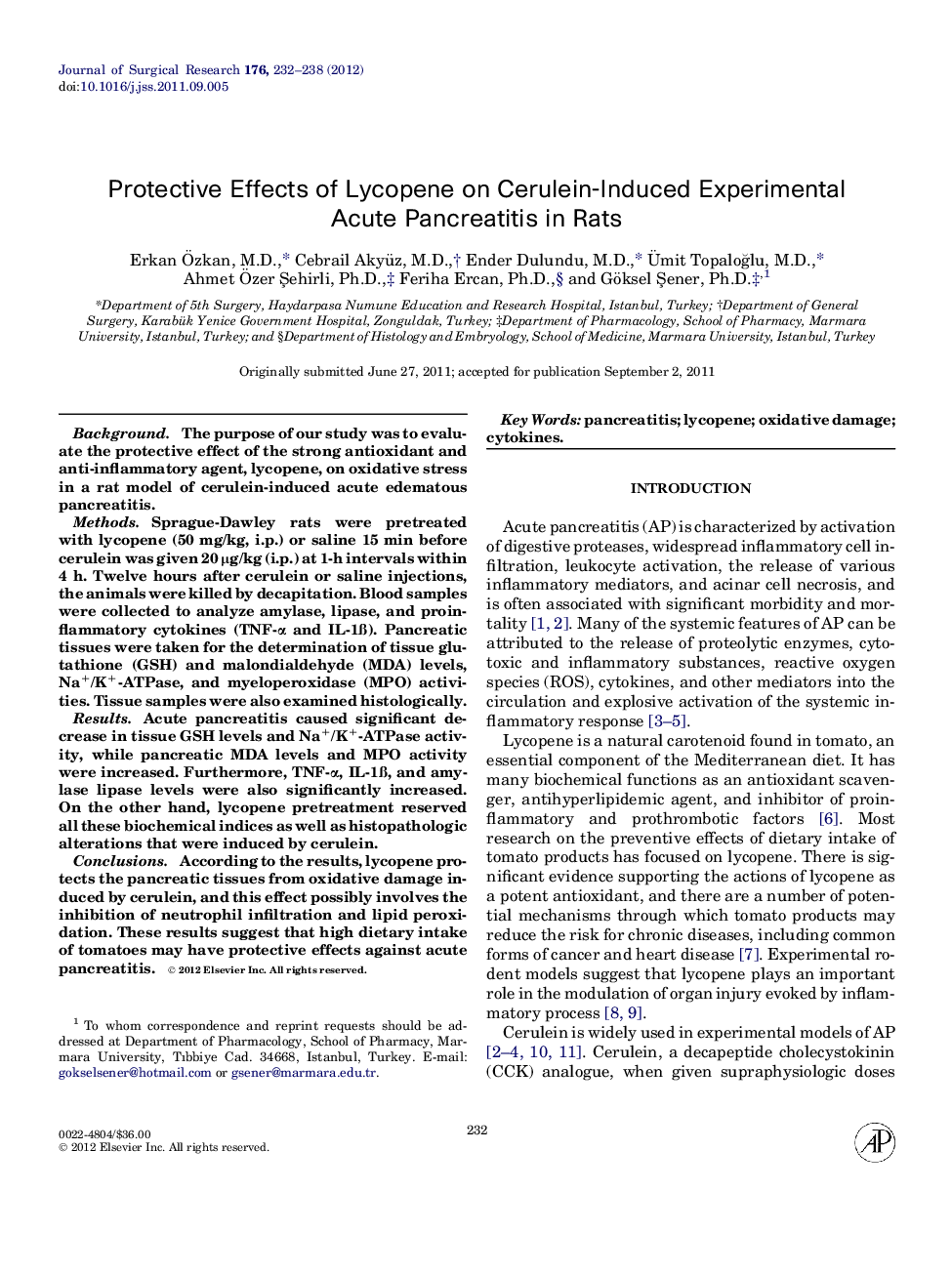| Article ID | Journal | Published Year | Pages | File Type |
|---|---|---|---|---|
| 4301286 | Journal of Surgical Research | 2012 | 7 Pages |
BackgroundThe purpose of our study was to evaluate the protective effect of the strong antioxidant and anti-inflammatory agent, lycopene, on oxidative stress in a rat model of cerulein-induced acute edematous pancreatitis.MethodsSprague-Dawley rats were pretreated with lycopene (50 mg/kg, i.p.) or saline 15 min before cerulein was given 20 μg/kg (i.p.) at 1-h intervals within 4 h. Twelve hours after cerulein or saline injections, the animals were killed by decapitation. Blood samples were collected to analyze amylase, lipase, and proinflammatory cytokines (TNF-α and IL-1ß). Pancreatic tissues were taken for the determination of tissue glutathione (GSH) and malondialdehyde (MDA) levels, Na+/K+-ATPase, and myeloperoxidase (MPO) activities. Tissue samples were also examined histologically.ResultsAcute pancreatitis caused significant decrease in tissue GSH levels and Na+/K+-ATPase activity, while pancreatic MDA levels and MPO activity were increased. Furthermore, TNF-α, IL-1ß, and amylase lipase levels were also significantly increased. On the other hand, lycopene pretreatment reserved all these biochemical indices as well as histopathologic alterations that were induced by cerulein.ConclusionsAccording to the results, lycopene protects the pancreatic tissues from oxidative damage induced by cerulein, and this effect possibly involves the inhibition of neutrophil infiltration and lipid peroxidation. These results suggest that high dietary intake of tomatoes may have protective effects against acute pancreatitis.
